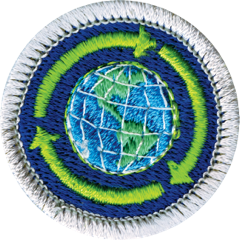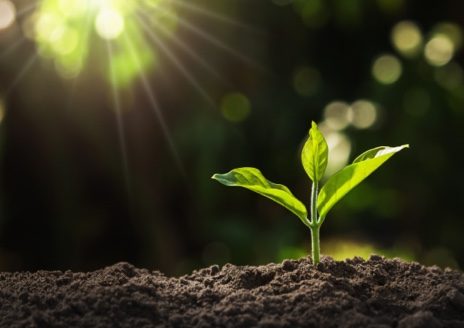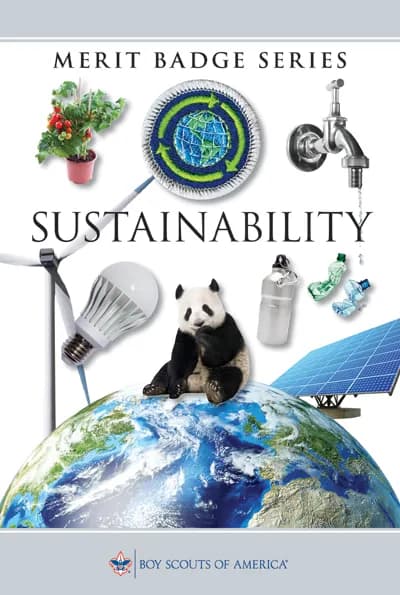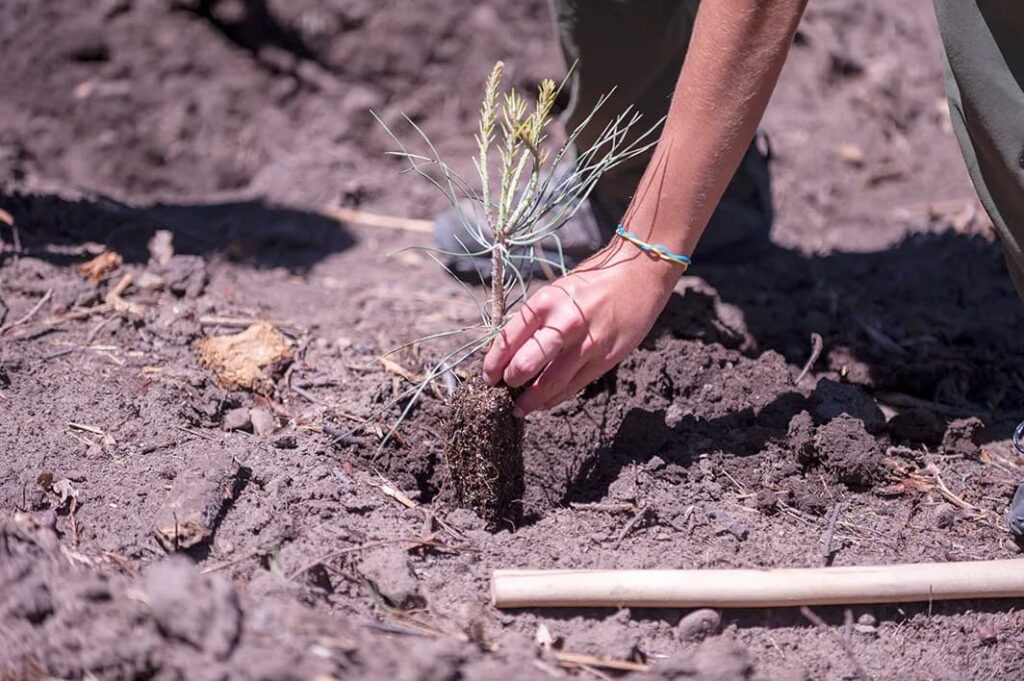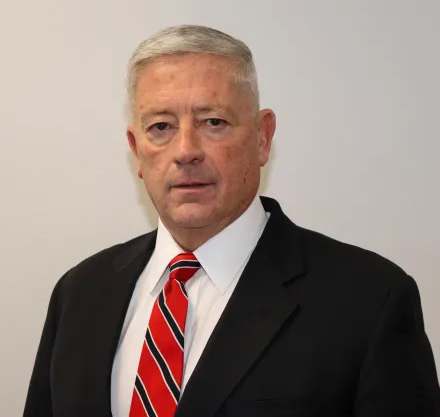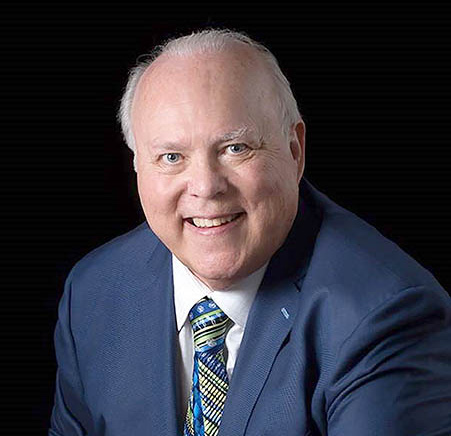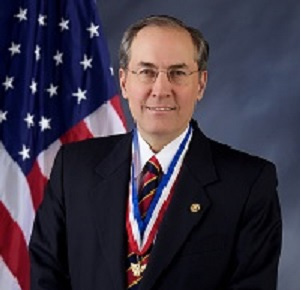
JUST AFTER JON HARMON GRADUATED from high school, the Eagle Scout from Portola Valley, Calif., started acting a little strange around the house. “He was chasing us around turning the water off when we were washing our hands. He would turn off the computers at night,” says his father, Scott, also an Eagle Scout. “I was getting a little frustrated.” Sustainability Merit Badge
That frustration led to several conversations, which led the elder Harmon to think about what it means to live sustainably. It also prompted him to propose a merit badge in sustainability. “I realized that … [other Scouting families] could learn about how important it is to live sustainably, too.”
Five years later, the Sustainability merit badge debuted at this summer’s national jamboree and joined the list of Eagle-required merit badges as an alternative to Environmental Science.
The new badge begins and ends with a family meeting in which family members discuss what they can do to live more sustainably. In between, the Scout undertakes projects, often alongside his family, to understand the big picture regarding topics such as water, food, energy, and transportation, as well as waste reduction, species decline, world population, and climate change.
To learn more about the badge, we talked with four Scouters who served on the Sustainability Merit Badge Task Force: Scott Berger of Scotch Plains, N.J., chairman of the Sustainability Leadership Team overseeing the merit badge’s development and chairman of the Merit Badge Maintenance Task Force; Scott Harmon of Portola Valley, chairman of the content team; Steve Bowen of El Centro, Calif., a member of the National Advancement Committee; and David Disney of Kansas City, Mo., a member of the National Executive Board.
What is sustainability in the simplest terms? “Sustainability is more of a new way of thinking as opposed to the science in the Environmental Science merit badge,” Berger says. “The idea is not just to conserve but to truly be stewards of our environment, our energy sources, and more—to think in terms not just of having enough for our lifetime but enough for future generations.”
Those challenges can seem overwhelming. Is that why the requirements focus so much on Scout-size projects? “It’s a hard concept for a Scout to feel that he himself, as a single person, can have an impact on the world, but he certainly can have an impact within his own family,” Berger says. “We’re hoping to bring [sustainability] down to a level where a Scout can feel he can make a difference, where his actions matter.”
How does the new badge compare with Environmental Science? “Environmental Science is more about studying the scientific end, whereas Sustainability is trying to teach a way to think—to live more responsibly and sustainably,” Berger says. “It’s a state of mind as opposed to the science.” Drawing similarities between the two is kind of like comparing macroeconomics vs. microeconomics, Harmon says. “Sustainability is macro, looking outward at the whole global problem. Environmental Science is micro, looking at the science and chemistry of what’s going on.”
Should interested Scouts pursue both badges, counting the second as an elective for Eagle? “I would encourage them to earn both,” Berger says. Bowen agrees, pointing out that earning Environmental Science could be good preparation for Sustainability. “You’ve got to understand the environment a bit before you can start figuring out how we can do a better job,” he says.
Can a Scout earn this badge if he lives in an urban area? Yes, says Berger. “There are a lot of things we’ve done to make this badge viable for any Scout, regardless of where he’s living,” he says. “Sustainability is certainly not just for suburban Scouts; it’s for everybody.”
Who can counsel this badge? Bowen suggests science teachers as potential counselors, although he points out that the badge is about more than just science. “Trees are very important to it, but so is not filling up our landfills,” he says.
Disney suggests seeking out people who are doing the sorts of projects the badge requires. “Who’s helping with glass recycling? Who’s helping with the community garden? Who’s helping with other things and might have a passion for a component of this? They would be ideal counselors,” he says.
Another source would be people who have responsibility for sustainability efforts at work. “Most companies have an energy team, or a green team, or an efficiency team,” Harmon says. “There’s a huge grassroots movement going on—in big companies in particular—that was not there five years ago.”
Of course, all merit badge counselors must register with the BSA and be approved by the council advancement committee before beginning work.
What impact could this badge have beyond the Scouts who earn it and their families? “I would hope that our awareness of our footprint on this earth will be recognized at an earlier age and will start the conversation about how we protect the earth,” Disney says. “Many young people are concerned about that and don’t know how to approach it. This gives them a path.”
Harmon adds, “We really want to empower the Scouting movement to make a difference, to make a visible difference in the world outside Scouting.”


